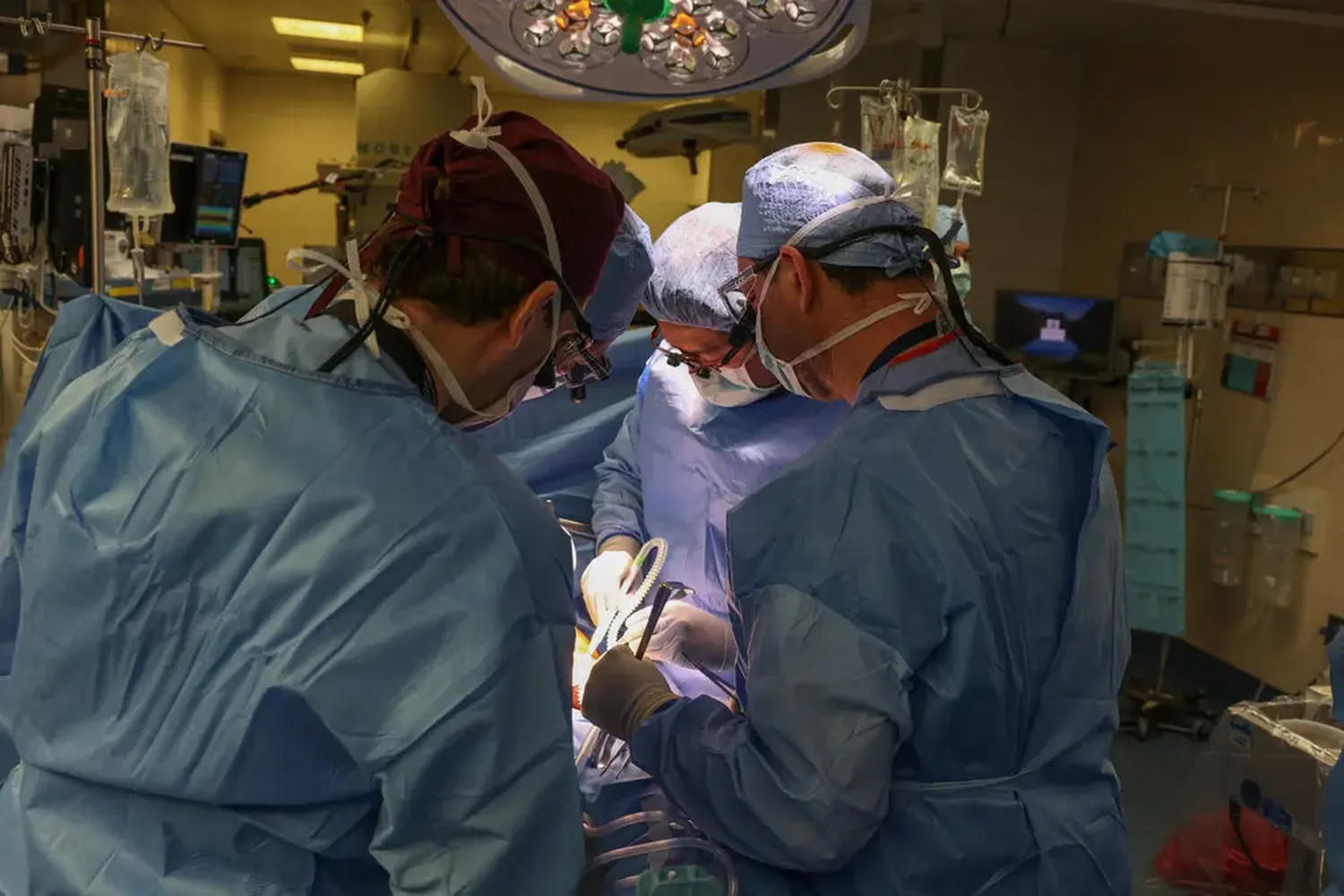Health
Surgeons Successfully Transplant First Pig Kidney Into Patient
In a groundbreaking medical procedure, surgeons at Massachusetts General Hospital in Boston have successfully transplanted a kidney from a genetically engineered pig into a 62-year-old man, marking a significant milestone in the field of organ transplantation. This pioneering surgery offers a glimmer of hope to hundreds of thousands of Americans suffering from kidney failure, potentially revolutionizing the way end-stage renal disease is treated.
The patient, a Black man whose identity has not been disclosed, is reportedly recovering well after the surgery. According to physicians at Massachusetts General Hospital, the transplanted kidney began producing urine shortly after the operation, indicating that the organ is functioning as intended. The patient's condition continues to improve, and he is already walking the halls of the hospital, with expectations of being discharged soon.
This medical breakthrough could have particular significance for Black patients, who experience disproportionately high rates of end-stage kidney disease. Dr. Winfred Williams, associate chief of the nephrology division at Mass General and the patient’s primary kidney doctor, highlighted the potential impact of this advancement, stating that a new source of kidneys from genetically modified animals could address the longstanding issue of inadequate access to kidney transplants for minority patients.
The successful transplantation of a pig kidney into a human patient is the result of years of research and development in the field of xenotransplantation, which involves the transplantation of animal organs into humans. Scientists and surgeons have overcome numerous challenges, including the human immune system's tendency to reject foreign animal tissue, to reach this point.
Dr. Leonardo V. Riella, medical director for kidney transplantation at Mass General, expressed optimism about the future of organ transplantation, suggesting that if kidneys from genetically modified animals can be transplanted on a large scale, dialysis could become obsolete. This would represent a significant advancement for the over 800,000 Americans who have kidney failure and rely on dialysis, a life-sustaining but burdensome treatment that filters toxins from the blood.
Currently, over 100,000 individuals in the United States are on a waiting list to receive a transplanted kidney from either a living or deceased human donor. The demand for donor kidneys far exceeds the supply, leading to long waiting times and high mortality rates among those awaiting transplantation. The successful use of pig kidneys could potentially alleviate this organ shortage, saving countless lives.
This medical milestone was achieved through the collaborative efforts of the Mass General Brigham health system, which developed the transplant program. The procedure not only represents a significant leap forward in the field of organ transplantation but also underscores the potential of genetic engineering and xenotransplantation to address critical shortages in the organ supply. As the patient continues to recover, the medical community and potential organ recipients watch closely, hopeful for the future implications of this remarkable achievement.

